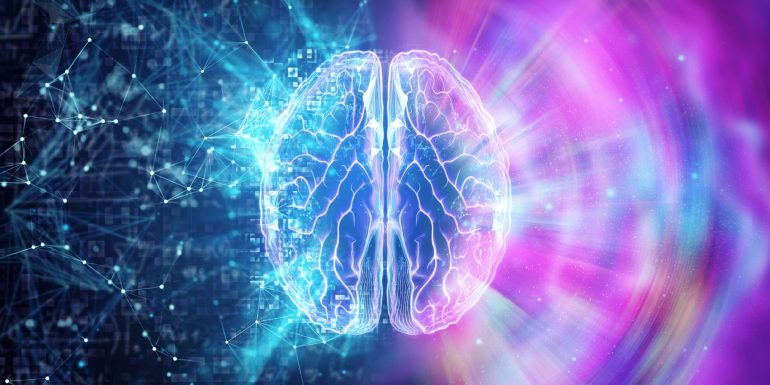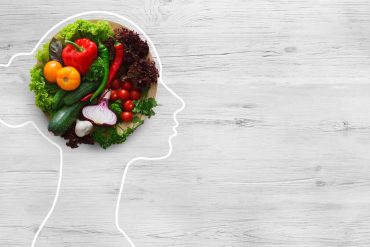
Microbiome influences brain development
Numerous scientific studies have shown that intestinal bacteria can have a huge impact on human health. Researchers in Austria are now reporting that these bacteria also affect brain development.
There are billions of bacteria living in the human gut. Their effect not only on digestion but also on our health. Gut bacteria are an important part of the immune system and are essential for the absorption of certain nutrients. They may also affect brain development, according to a new study.
starting point for early treatment
as it is currently Message The University of Vienna states that extremely premature babies have a higher risk of brain damage.
Researchers from the University of Vienna and the Medical University of Vienna (MedUni) have now discovered a starting point for early treatment of this type of damage outside the brain: bacteria in the intestines of premature babies play a key role in this.
Scientists found that overgrowth of the gastrointestinal tract with Klebsiella bacteria is associated with an increased incidence of certain immune cells and the development of neurological damage in premature babies.
The results of the study were published in the journal “cell host and microbe“be released.
gut immune system brain axis
The early development of the intestines, brain, and immune system are closely related. Researchers talk about the gut-immune-system-brain axis here. The bacteria in the gut cooperate with the immune system, which monitors the intestinal microbes and develops an appropriate response to them. The gut is in contact with the brain via the vagus nerve, but also through the immune system.
“We investigated the role of this axis in the brain development of highly premature babies,” explains study first author David Seki. “The microorganisms of the gut microbiome—which is a significant accumulation of hundreds of types of bacteria, fungi, viruses, and other microbes in the gut—are in balance in healthy people,” says the microbiologist and immunologist.
“Particularly in premature babies, whose immune systems and microbiome are not fully developed, there is a possibility of a shift, which can also have negative effects on the brain,” the scientist says.
avoid brain damage
“Indeed, we were able to identify certain patterns in the microbiome and in the immune response that are clearly related to the progression and severity of brain injuries,” says David Berry, microbiologist and head of the research group at the Center for Microbiology . Environmental System Science at the University of Vienna, and Head of the Joint Microbiome Facility – a scientific consortium between the University of Vienna and MedUni Vienna.
“It is now important that such patterns often appear before changes occur in the brain. This opens an important window of time in which brain damage in highly premature babies can be avoided or prevented. “
Biomarkers Identified
The starting point for the development of appropriate treatments are the biomarkers that the interdisciplinary research team was able to identify.
Neonatologist Lukas Visgrill of the Department of Neonatology, Pediatric Intensive Care Medicine and Neuropediatrics at the University Clinic explains, “Our data suggest that excessive growth of the Klebsiella bacterium and the associated increased -T cell values can markedly worsen brain damage. ” Meduni for Pediatrics of Vienna.
He continued: “We were able to track these patterns because, for a very specific group of newborns, we conducted detailed research for the first time into how the gut microbiome, the immune system and the brain develop and how they Let’s talk”.
Reportedly, a total of 60 extremely premature babies born before the 28th week of pregnancy and weighing less than a kilogram for several weeks, sometimes months, were studied in the study.
Using state-of-the-art methods, the researchers analyzed the microbiome, immune cells, brain wave measurements (such as aEEG) and MRI images of the babies’ brains.
Another research project
As stated in the announcement, further surveys are to be added here at two levels: the study, which was conducted under the joint direction of Angelica Berger (Comprehensive Center for Pediatrics, Meduni Vienna) and David Berry (University), an inter-university was implemented as a cluster project. Vienna), a research project that will examine the microbiome and its importance to the neurological development of premature babies in an even more accessible way.
In addition, scientists would like to continue to support children in early studies. “How children’s motor and cognitive abilities develop remains to be seen only over many years,” says Angelica Berger.
“We would like to understand even better how this early development of the gut-immune system-brain axis affects it over the long term.”
The most important collaborative partners for the project are already on board: “The children’s parents supported us in the study with great interest and great openness,” says David Seki. “Ultimately, that was the only reason we were able to get these important insights. We are very grateful for that.” (advertisement)
Author and source information
This text complies with the requirements of specialist medical literature, medical guidelines and current studies and has been checked by medical professionals.
Source:
- University of Vienna: Intestinal bacteria affect brain development, (Accessed: 04.09.2021), Vienna University
- David Seki, Margareta Meyer, Bella Haussmann, Petra Pajevac, Vito Giordano, Katharina Goerle, Lukas Untersinger, Katrin Kleber Ma-Schrehoff, Kim De Pepe, Tom Van de Wiele, Andreas Spitler, Gregor Kasprian, Benedict Worth, Anjelica Berger, David Berry , and Lucas Visgrill: aberrant gut-microbiota-immune-brain axis development in premature neonates with brain damage; In: Cell Host and Microbe, (Published: 03.09.2021), cell host and microbe
Important Articles:
This article is for general guidance only and is not intended to be used for self-diagnosis or self-treatment. He cannot take the place of visiting the doctor.

Web guru. Amateur thinker. Unapologetic problem solver. Zombie expert. Hipster-friendly travel geek. Social mediaholic.





